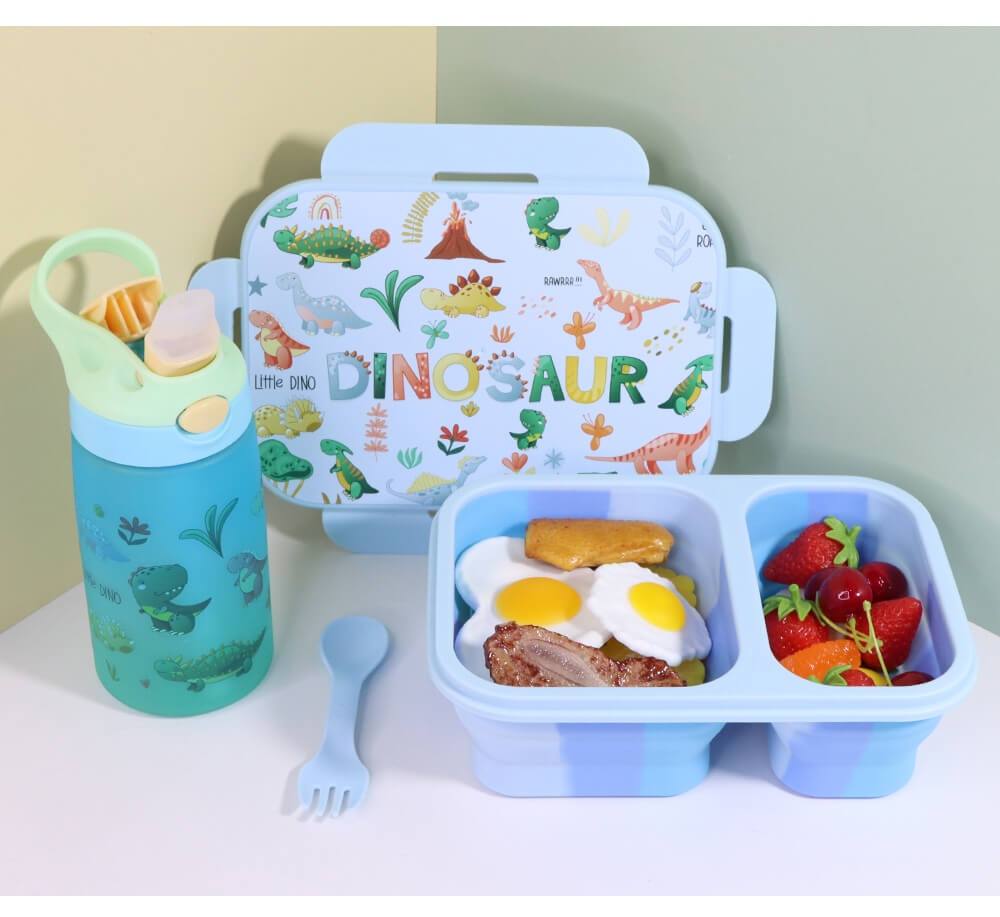Zawartość
Sustainable Kitchen: Replacing Plastic with Silicone for an Eco-Friendly and Healthy Home
In recent years, sustainability has become a key focus for consumers, and the kitchen is no exception. As the world moves towards a greener future, reducing single-use plastic and opting for eco-friendly alternatives has become a priority. One such alternative is silicone, a versatile material that is increasingly replacing plastic in kitchen products due to its durability, safety, and environmental benefits. In this article, we will explore why silicone is an excellent choice for creating a sustainable kitchen, from its environmental impact to its health benefits.
Why Silicone is the Perfect Choice for a Sustainable Kitchen
1. Eco-Friendly and Sustainable Material
Silicone is a highly durable material made from natural resources such as silica, a compound found in sand. Unlike plastic, which is derived from petroleum and takes hundreds of years to degrade, silicone is long-lasting and does not contribute to plastic waste. Here’s why silicone is more eco-friendly:
Reusable and Long-Lasting: Silicone kitchen products can last for years without degrading. Unlike plastic, which may need to be replaced frequently, silicone items such as bakeware, food storage bags, and kitchen utensils are incredibly durable and can withstand heavy use.
Non-Toxic and BPA-Free: Silicone is non-toxic, BPA-free, and safe for food contact. Unlike some plastics, which may leach harmful chemicals into food over time, silicone does not contain any harmful substances, making it a safer choice for your health and the environment.
100% Recyclable: While silicone may not be as widely recycled as other materials, it is 100% recyclable and can be repurposed into new products. This reduces the overall environmental impact of silicone products compared to single-use plastic items.
2. Silicone’s Superior Durability and Versatility
One of the main advantages of silicone over plastic is its durability. Silicone can withstand extreme temperatures, from -40°F to 450°F, without losing its shape or integrity. This makes silicone an ideal material for a wide range of kitchen products, including:
Bakeware and Molds: Silicone bakeware, such as cake pans, muffin tins, and baking mats, can withstand high oven temperatures, allowing you to bake your favorite treats without worrying about toxic fumes or the material warping.
Food Storage Bags: Silicone food storage bags are an eco-friendly alternative to disposable plastic bags. They can be used in the freezer, microwave, and dishwasher, making them perfect for meal prepping, storing leftovers, and freezing fruits and vegetables.
Utensils and Cookware: Silicone spatulas, spoons, and baking brushes are flexible, heat-resistant, and non-stick, making them perfect for stirring, flipping, and cooking without damaging your cookware.
3. Silicone Reduces Waste and Promotes Reusability
The move toward a zero-waste kitchen is gaining momentum, and silicone products play a significant role in this trend. Unlike single-use plastic items, silicone kitchen tools can be used repeatedly without degradation. By switching to silicone products, you can significantly reduce your household’s overall plastic waste. For example:
Słomki silikonowe: Replace single-use plastic straws with reusable silicone straws that are dishwasher-safe and can be used over and over again.
Silicone Food Covers: Instead of using disposable plastic wrap, silicone food covers can be used to cover bowls and containers, keeping food fresh without contributing to plastic waste.
4. Health Benefits of Silicone Over Plastic
In addition to being eco-friendly, silicone offers several health benefits when compared to plastic:
Non-Reactive with Food: Unlike plastic, which can react with acidic foods and beverages, silicone does not leach harmful chemicals when exposed to heat or food. This makes it a safer option for cooking, storing, and eating.
No BPA, Phthalates, or PVC: Many plastics contain harmful chemicals like BPA (Bisphenol A), phthalates, and PVC, which have been linked to health problems such as hormonal imbalances, fertility issues, and even cancer. Silicone, on the other hand, is free of these harmful chemicals, making it a safer and healthier alternative.
Łatwość czyszczenia i konserwacji: Silicone is non-stick and easy to clean, which helps prevent bacteria growth. It can be safely washed in the dishwasher, making it a more hygienic option for your kitchen.
How to Transition to a Silicone-Based Kitchen
Making the switch from plastic to silicone in your kitchen can be simple and cost-effective. Here are some steps to get started:
1. Replace Plastic Storage Bags with Silicone Food Bags
Start by swapping out your single-use plastic food bags with reusable silicone food bags. These bags are perfect for storing snacks, frozen foods, and leftovers. They’re microwave-safe, dishwasher-safe, and freezer-friendly, making them highly versatile.
2. Invest in Silicone Bakeware and Cooking Utensils
Replace your traditional non-stick pans, plastic spatulas, and spoons with silicone alternatives. Silicone bakeware is perfect for baking cakes, cookies, and muffins without worrying about harmful chemicals in non-stick coatings. Silicone spatulas and spoons won’t damage your cookware and are heat-resistant, making them ideal for stirring hot liquids or flipping pancakes.
3. Opt for Silicone Reusable Straws and Food Covers
Replace disposable plastic straws with silicone straws that can be cleaned and reused. Similarly, replace plastic food wrap with silicone food covers to keep your food fresh without contributing to plastic pollution.
4. Consider Silicone Cleaning Tools
Silicone cleaning tools, such as scrubbers and dish brushes, are durable and can be used over and over again, unlike disposable sponges that can harbor bacteria. These cleaning tools are easy to rinse and dry, ensuring a more hygienic and sustainable cleaning routine.
Wnioski
Switching to silicone products is a simple and effective way to create a more sustainable kitchen. By replacing plastic with silicone, you can significantly reduce your environmental footprint while enjoying the benefits of durable, safe, and versatile kitchen tools. Not only does silicone offer eco-friendly advantages, but it also provides a healthier option for your family, free from harmful chemicals found in plastic.
Making the change to a silicone-based kitchen is an investment in your health, the planet, and the future. By choosing silicone products, you can contribute to a cleaner environment, reduce plastic waste, and create a safer, healthier kitchen.
FAQ About Sustainable Kitchen Products and Silicone
1. Is silicone a safe alternative to plastic?
Yes, silicone is a safe, non-toxic, and BPA-free alternative to plastic. It does not leach harmful chemicals into food, making it a healthier option for food storage and cooking.
2. Can silicone bakeware go in the oven?
Yes, silicone bakeware is heat-resistant and can withstand temperatures up to 450°F (230°C), making it ideal for baking in the oven. It’s also non-stick, which makes for easy food removal and cleaning.
3. How do I clean silicone kitchen products?
Silicone kitchen products are easy to clean. You can wash them by hand with warm soapy water or place them in the dishwasher. Silicone is naturally non-stick, which helps prevent food residue from sticking.
4. Can silicone products be recycled?
Yes, silicone is 100% recyclable, although not all recycling centers accept silicone. It can be repurposed into new products, reducing its environmental impact.
5. Are silicone food storage bags safe for the freezer?
Yes, silicone food storage bags are safe for freezing. They can withstand freezing temperatures as low as -40°F, making them perfect for storing frozen foods.


